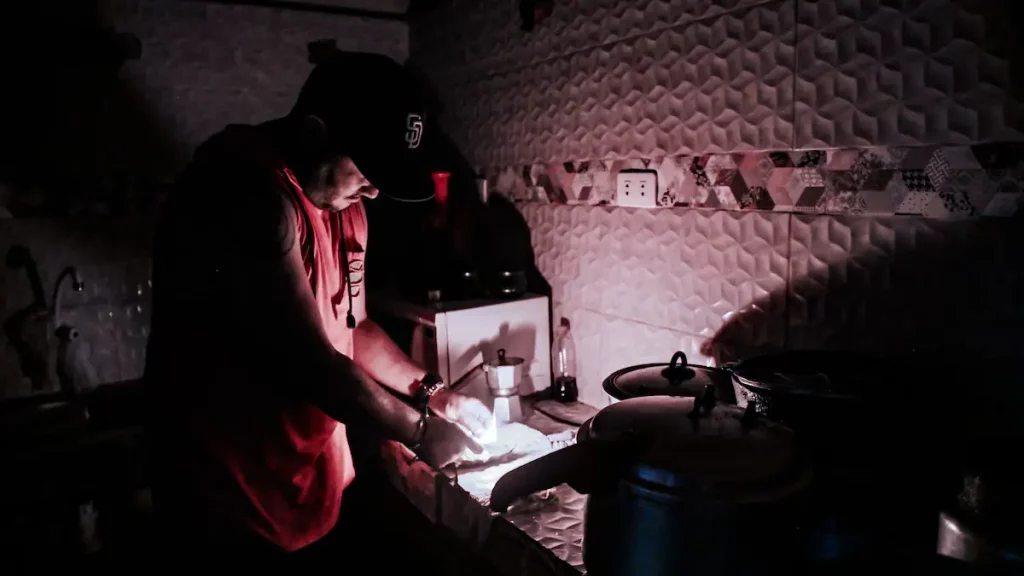
Power cuts in Cuba, which have become a daily occurrence since May, have frustrated residents, who have sometimes taken to the streets to protest.
• Also Read: Cubans show their anger over power outages
• Also Read: Cuba will get out of its “complex situation,” the president said a year after the demonstrations
The government has condemned the maneuvers of “counter-revolution”, but the opposition sees “its best friend” in these load-sheddings.
“People can’t stand the heat anymore, they go out at night on the street, on the balconies, waiting for the electricity to come back on,” Estrella Ramírez, 62, who lives in Bauta, told AFP. 29 km from Havana.
Recurring power cuts triggered historic demonstrations that rocked the country on July 11 and 12, 2021, when tens of thousands of Cubans took to the streets chanting “we are hungry” and “down with the dictatorship”.
A year later, in the scorching heat of the Caribbean summer, other protests, on a smaller scale, were recorded in many parts of the country.
On July 14, in Los Palacios, a town of 38,000 in the west of the island, several dozen residents took to the streets to protest the blackout, some banging pots.
“Turn on the power, dammit!”, and “we don’t want any blabla,” locals shouted, according to videos posted on social media.
According to independent media, similar demonstrations were held on July 21 in Jague Grande in Matanzas (west) province, as well as in the villages of Caibarián and Sagua la Grande in Santa Clara (center) province.
Referring to the American embargo in place since 1962, President Miguel Diaz-Canel accused the protesters of acting on behalf of a “counter-revolution” and “at the whim of those who embargo us.”
But for moderate dissident, Manuel Cuesta Morua, these cuts are now the “best ally” of opposition to communist power. “It brings back the opposition’s criticism of the obsolescence of the Cuban economic model,” he told AFP.
“These are the structural consequences of government incompetence and it gives an opportunity (…) to express the accumulated social disorder,” he said.
This type of protest is highly unusual on the island, where nearly 700 participants in the July 11 protests are still in prison, some of whom have already received heavy sentences.
Power cuts are nothing new in Cuba. In the 1990s, during the “Special Period” following the fall of Cuba’s ally, the Soviet Union, blackouts lasted until 4 p.m.
But “there was not this accumulated political rejection, there was not the fatigue that exists today,” explained Cuban sociologist Rafael Hernández, from the American University of Washington, in an article published by the Center for Latin America and Latin Studies.
“As far back as 1993-1994 there were no current cuts until 4 p.m., but the impact was much greater as we saw on July 11,” the researcher adds.
With little impact so far, Havana will now face four-hour power cuts three times a week (between 10:00 a.m. and 2:00 p.m.), the capital’s governor Reinaldo García Zapata announced Friday, citing the official newspaper Tribune de. Havana.
According to official figures, 68% of Cuban households cook with electricity. However, load shedding occurs when consumption peaks when people are getting ready to eat.
In the village of Jesus Menendez in the east of the country, the harvests take place between eight and ten o’clock every day. “Many people cook with electricity. How do they do it? They use coal or kerosene when they find it,” 54-year-old housewife Gisela Gonzalez told AFP by phone.
President Diaz-Canel urged his compatriots to “understand” and “conserve” energy in the face of a situation with no “immediate” solution.
According to the public company, the National Electric Union (UNE), 95% of energy production in Cuba comes from fossil fuels, mostly imported. The rise in global prices has increased the cost of these imports by 30%.
Meanwhile, of the country’s 20 power stations, 19 are over 35 years old, facing maintenance work and frequent breakdowns, the government finds, leaving little room for manoeuvre.
“The emergency going through the power system will continue and the recovery will be gradual,” Edir Guzmán, an official from UNE, recently admitted to state television.





More Stories
Allegations of corruption Qatar warns of ‘negative impact’ of European measures
USA: Famous “Hollywood cat” euthanized in Los Angeles
The campaigner who called for the shooting of Ukrainian children has not been charged